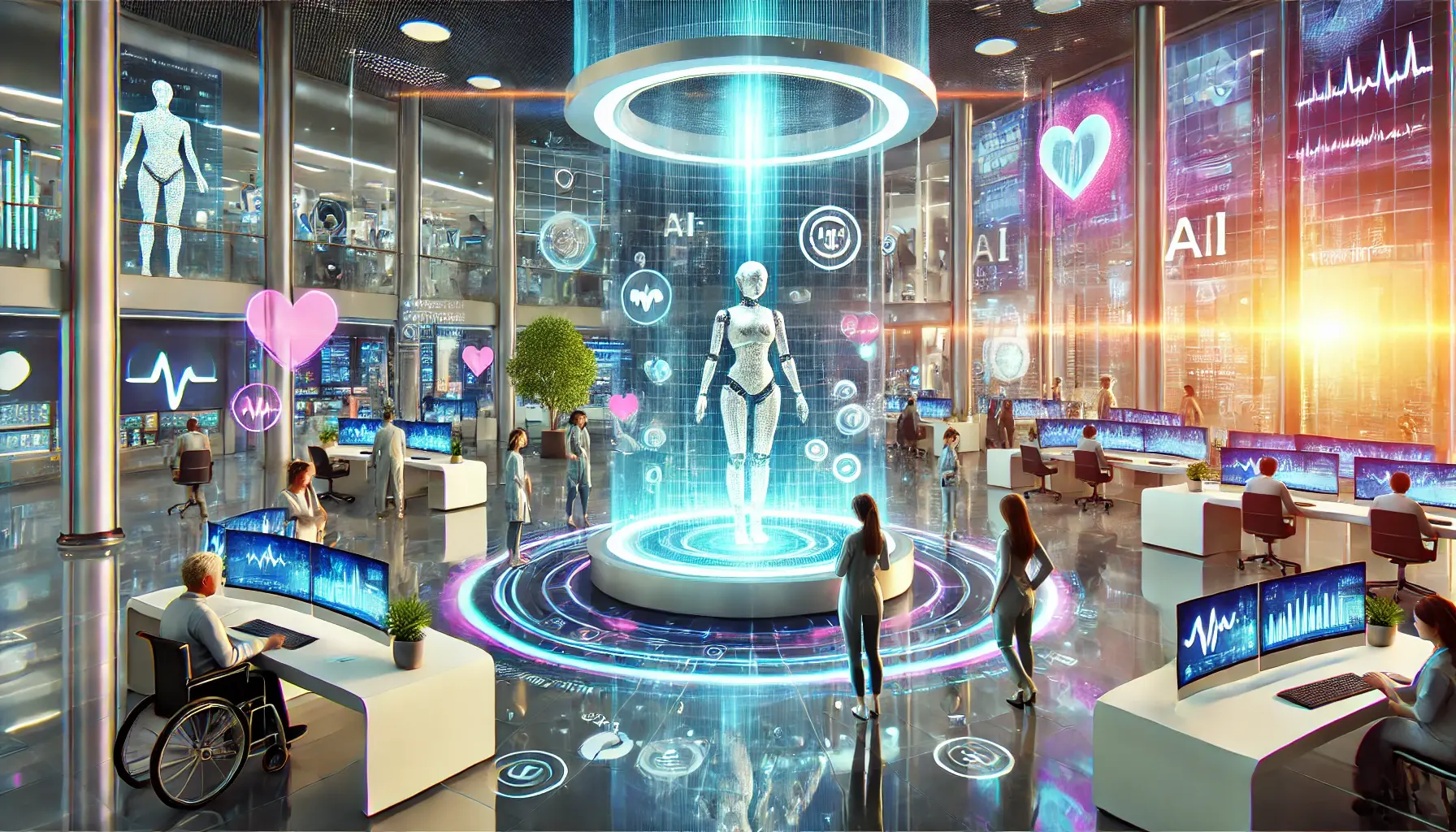- The healthcare industry is undergoing a remarkable transformation, with AI chatbots playing a pivotal role. These digital assistants are changing how patients interact with healthcare providers, improving efficiency, and ultimately enhancing patient outcomes. Here’s a closer look at how AI chatbots are making a significant impact in healthcare.
1. Continuous Patient Support
- AI chatbots offer the invaluable advantage of 24/7 patient support. Unlike their human counterparts, chatbots don’t need breaks, ensuring that patients can get help any time they need it. They can answer common health questions, help assess symptoms, and provide medication reminders. This constant availability ensures that patients receive consistent care and support.
2. Symptom Assessment
- With advanced natural language processing (NLP), AI chatbots can understand and respond to patient inputs effectively. This makes them particularly useful for assessing symptoms. Patients can describe their symptoms, and the chatbot will analyze the information and offer preliminary advice on whether medical attention is needed. While not a substitute for a doctor, symptom-assessment chatbots help patients make informed health decisions, potentially reducing unnecessary visits to healthcare facilities.
3. Mental Health Support
- AI chatbots are making a big difference in mental health care. They offer support through guided conversations, provide coping strategies, and connect users with mental health resources. For those who might be hesitant to seek help due to stigma or other barriers, chatbots offer an accessible and confidential way to discuss concerns. They can also monitor users’ emotional states and deliver timely interventions, promoting better mental health management.
4. Streamlining Administrative Tasks
- Healthcare professionals often spend a lot of time on administrative tasks like filling out forms, updating patient records, and handling billing inquiries. AI chatbots can automate many of these routine tasks, freeing up valuable time for healthcare providers to focus on more important responsibilities. By efficiently managing administrative functions, chatbots contribute to a smoother and more effective healthcare experience for both patients and staff.
5. Proactive Health Monitoring
- Integrated with wearable devices, AI chatbots can monitor patients’ health metrics in real time. They can track vital signs, physical activity, sleep patterns, and other health indicators, providing immediate feedback or alerts to both patients and their healthcare providers when something seems off. This proactive approach allows for early detection of potential health issues and timely interventions, leading to better patient outcomes.
6. Patient Education
- Education is key to effective healthcare, and AI chatbots are great at this too. They provide information about medical conditions, treatment options, and post-treatment care in a way that’s easy to understand. By empowering patients with reliable educational resources, chatbots encourage active participation in health management. This increased patient engagement can lead to better adherence to treatment plans and improved overall health outcomes.
Conclusion
- AI chatbots are proving to be invaluable in the healthcare industry. Their ability to provide continuous support, assist with symptom assessment, offer mental health support, streamline administrative tasks, monitor health metrics, and educate patients makes them essential tools in modern healthcare. As technology advances, the role of AI chatbots in healthcare is expected to grow, further enhancing the efficiency and effectiveness of patient care.
- Embracing AI chatbot technology is not just a trend but a necessary step toward a more efficient, patient-centered healthcare system. By integrating these digital assistants into healthcare practices, providers can ensure that patients receive timely support and accurate information, ultimately leading to better health outcomes for everyone.

